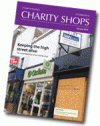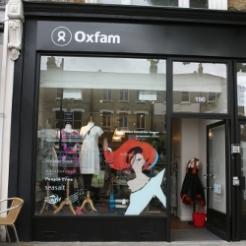Oxfam has issued an urgent appeal for Syria as its annual accounts reveal a fall in income from shops and fundraising.
While the development charity increased expenditure to the tune of £3.6m last year, income fell by nearly 5 per cent, or £17.6m, prompting the charity to issue a public call for donations to its shops, regular giving scheme and its present emergency appeal for its work in the Syrian conflict.
Oxfam’s total income in 2012/13 was £367.9m, down from £385.5m the year before. Income had risen in the previous financial year on the back of increased statutory funding.
In total fundraising income fell by £15m to £267.8m. Oxfam attributes this shortfall to an unexpected drop-off in legacy income. It also blames the lack of a successful emergency appeal in bringing in the funds. While Syria has been a high-profile issue over the course of 2012/13, Oxfam has so far funded only 27 per cent of the estimated £35m it needs to deal with the crisis, prompting it to specifically request donations for Syria following the public release of its annual report.
Oxfam chief executive Mark Goldring said that it had been a tough year for his charity.
“Public support is vital to enable us to continue our work and we are putting out a particularly urgent appeal for donations towards our emergency response in Syria,” he said. “We also hope to inspire more people to become regular givers to Oxfam. This is crucial in enabling us to plan for the future and bring about really lasting change by working long-term with communities.”
Oxfam retail income down 10 per cent
The organisation, which runs the second-largest charity retail operation in the UK, reported a 9.9 per cent fall in the net contribution charity shops made in 2012/13. Total net contribution from shops last year stood at £20.1m. The value of retail sales overall fell by £1.2m, according to the annual report.
Again, Oxfam blamed the general strain on purses across the UK for the decline, noting it had received less high quality donations to its retail stores.
The charity’s director of finance Bob Humphreys said that the ultimate decline in income overall was not surprising.
“After several years of pressure on household incomes, people are buying fewer new clothes and other items, which has a knock-on effect on the quantity and quality of donations to our shops,” said Humphreys. “We need confidence in the UK economy to return – not least to help the many people in the UK who are struggling financially. We also urgently need people to donate any unwanted clothes, books and homewares to Oxfam, every item helps.”
Last year's Charity Shops Survey, compiled by Charity Finance magazine, found that the shortage of donated goods and poor quality of donated goods were two of the top three concerns of charity retailers.
The Charity Retail Association, which represents the charity shop sector, said that Oxfam's experience is one shared by many other charities. The economic downturn has also witnessed more people selling unwanted goods online rather than giving them to charity.
"The good news is that many charities, including Oxfam with its Shwopping campaign, are looking at new and innovative ways to encourage people to donate in order to sustain the vital fundraising that charity shops need during tough times," said Wendy Mitchell, head of policy and public affairs at the Association.

| 2013 Charity Shops Survey - pre order your copy and save £25.0085 charities, over 6,500 shops, more than £762m income… but only one place with everything you need to know. Find out more... |









